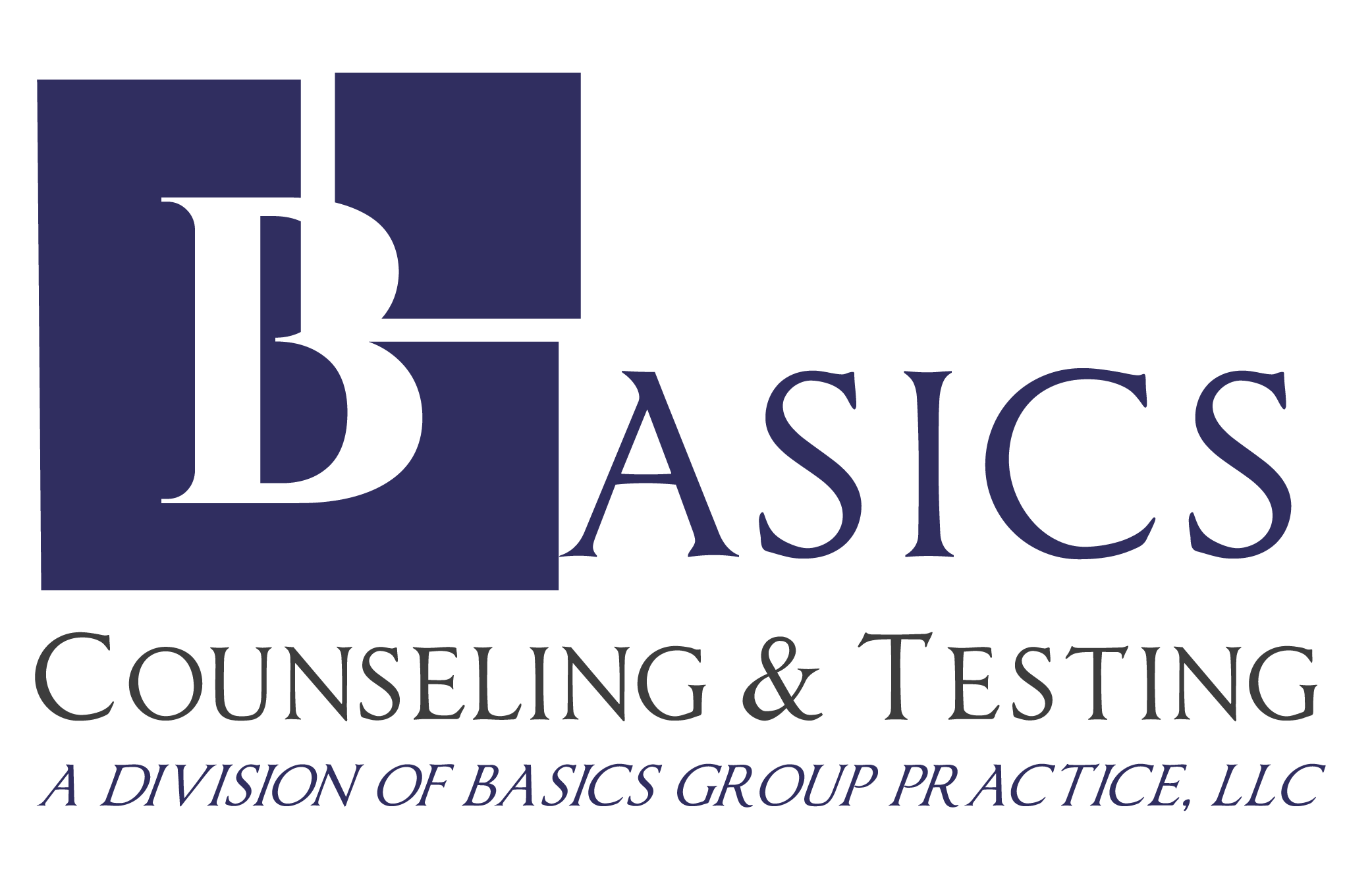Psychological Evaluations & Testing
BASICS offers psychological evaluations for children, adolescents, and adults. Our comprehensive assessments are designed to clarify an individual’s strengths and weaknesses in cognitive, academic, and emotional functioning. Neuropsychological assessment are also used to help to identify inefficiencies in brain functioning which contribute to learning and social/emotional difficulties. Results can contribute to planning career direction, higher education and training, vocational rehabilitation, and psychotherapeutic approach.
For children and adolescents, results from the neuropsychological evaluation are useful in determining such things as appropriate educational placement and programming, behavior management techniques, avenues for self-help, career direction, and advisability of medical intervention.
For adults, results from assessments are most frequently used to update documentation of a learning disorder for college, professional study, or licensing. However, it can also be used to diagnose neurologically-based brain disorders and to help plan rehabilitation following a brain injury or a stroke.
NEUROLOGICAL ASSESSMENTS
Neuropsychological testing is a comprehensive evaluation of your cognitive and behavioral abilities using a set of standardized tests and procedures. It assesses the brain’s functioning and can yield valuable information about its structural and functional integrity. Although individual scores are important, the neuropsychologist looks at all of the data from the evaluation to determine a pattern of cognitive strengths and weaknesses.
Neuropsychological tests evaluate functioning in a number of areas including: intelligence, executive functions (such as planning, abstraction, and conceptualization), attention, memory, language, perception, sensorimotor functions, motivation, mood state and emotion, quality of life, and personality styles. The areas addressed in an individual's evaluation are determined by the referral question, patient's complaints and symptoms, and observations made during interview and test administration. Learn More
TESTING FOR AUTISM/DEVELOPMENTAL DELAYS
Autism Spectrum Disorder (previously Autistic Disorder; Asperger’s Disorder) has gained increased recognition over the past several years, and there has been a significant rise in the number of children diagnosed with this disorder. Autism Spectrum Disorder is characterized by symptoms such as poor social communication (e.g. poor eye contact, inability to engage in normal back-and-forth conversation), failure to develop peer relationships, rigid adherence to routines and rituals, and abnormally intense fixations and/or preoccupations. There may be delays in spoken language, inability to initiate or sustain conversation with others, and repetitive use of language that may not make sense to others. Children with ASD may also be very sensitive to certain visual stimuli, sounds, tastes, smells, or textures. Learn More
TESTING FOR SCHOOL-BASED OR TESTING ACCOMMODATIONS
We often get request from families who are confused or stressed about options for their children regarding Special Education (IEP or 504 plan) services or applying for accommodations during “high stakes” tests such as the SAT, ACT, GRE, LSAT, and MCAT. For some students, receiving accommodations such as extended time or frequent breaks can give them a better chance of reaching their academic potential. Advocating for your child in school requires the assistance of psychologists who are familiar with the process and will work tirelessly for your family. Common mistakes can jeopardize your student's chances of being granted accommodations they deserve. Learn More
PSYCHOLOGICAL AND PSYCHOEDUCATIONAL ASSESSMENTS
Psychological Testing by a trained psychologist can be extremely useful when there is lack of clarity or understanding regarding the reasons and causes of various emotional, psychological, learning, or behavioral problems of a child, adolescent or adult.
Psychological testing refers to the administration of standardized tasks and procedures which allow for a sampling of behavior, in order to understand and predict a given individual's psychological, emotional, and behavioral functioning in a variety of settings. It typically will include an examination of cognitive functioning and learning problems, which might impact an individual’s ability to be successful in school, at work or living independently at home. Learn More
PRE-OPERATIVE BARIATRIC SURGERY EVALUATION
If you are considering weight loss surgery, your doctor may recommend a pre-surgery psychological evaluation. This evaluation is designed to provide your doctor with information about psychological factors that may influence how well you do. The goal is to maximize a positive outcome.
At BASICS, we follow psychological evaluation protocols consistent with those recommended by the American Society for Bariatric Surgery, and by the Veterans Health Administration. Our protocol includes a structured interview with a clinical psychologist, and a set of paper and pencil and computerized tests. These are scored and compared to appropriate norms, interpreted, and integrated with the information from the interview, and a written report is provided for your surgeon.
ADHD ASSESSMENT (CHILD/ADULT)
Attention Deficit Hyperactivity Disorder (ADHD) is a cognitive syndrome that is seen in children and adults. It manifests as cognitive inattentiveness and/or hyperactivity with impulse control problems. It begins in early childhood and continues throughout adulthood, so the term "Adult ADHD" is simply a continuance of what that individual has experienced throughout the lifespan. Oftentimes, ADHD runs in families, so we often see the brain signs in at least one parent as well as the child. Learn More

